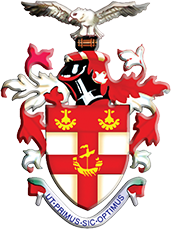Interpreters
All patients and their carers who do not speak English well or are hearing impaired have the right to free, confidential and professional interpreters when they use NSW Health services.
People using health services have the right to participate in decisions about their care. The need to understand and be understood is important for safe and effective health care. Poor communication can result in misunderstandings which may be confusing, distressing and dangerous. Interpreters help health staff, patients and families to communicate clearly.
Health staff are responsible for arranging interpreters for patients and carers. If an interpreter is not provided, it is the right of the patient or carer to ask for an interpreter.
Non-English speakers who need to talk to English speakers can phone the Translating and Interpreting Service (TIS) on 131 450. When you phone, tell the operator the language you speak and ensure you have the name and phone number of the person you wish to contact. This free service is available 24 hours a day, seven days a week.
The health interpreter services provide face-to-face interpretation for appointments that health staff have booked in advance. In emergencies they can sometimes provide immediate face-to-face appointments or telephone interpretation, depending on what staff are available. If health interpreting services are unavailable, health staff can access the Translating and Interpreting Service (TIS) who provide interpretation over the phone.
Many patients and carers who speak English as a second language may not need an interpreter for normal communication. However, the stress associated with illness, injury and the unfamiliarity of hospital can affect language skills, particularly if the person has learnt English recently.
This means people may find it more difficult to communicate in hospital. Also, conversational English is very different from the language used to discuss medical conditions, treatment options and Western health concepts. For this reason, it is best to use an interpreter if there is any doubt about being able to understand staff or to make yourself understood.
Health interpreter services provide interpretation for all community languages, including Australian Sign language (AUSLAN). Interpreters are not immediately available in all languages, but the service will attempt to find an appropriate interpreter and will arrange an appointment time.
Why is it important to use professional interpreters rather than family or friends?
If you do not speak English well, health staff are required to contact a professional interpreter for assistance. Family members or friends can be present, but all communication about health treatment should be through the interpreter.
Interpreters are qualified and trained in understanding medical terms and how the public health system works. Professional interpreters are also bound by a code of conduct that requires them to keep all information discussed confidential.
Professional interpreters must relate information accurately and in full. Family and friends may leave out or change information for a number of reasons. They may feel that they are protecting their relative or friend from information, or they may be embarrassed to discuss personal health matters.
It can also be overwhelming for people to try to interpret for family members or friends because they may not fully understand the medical terminology being discussed or are not able to phrase things accurately in their language. Family and friends should only be used in emergencies if there is no other alternative available, or to interpret for non-essential care.
